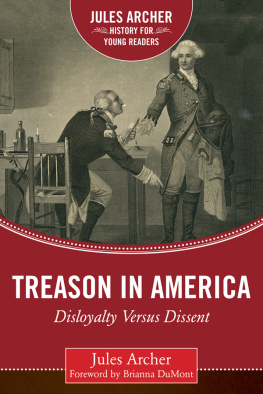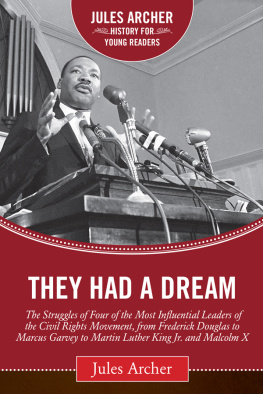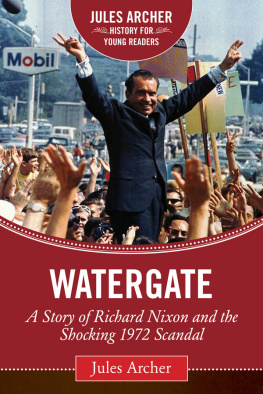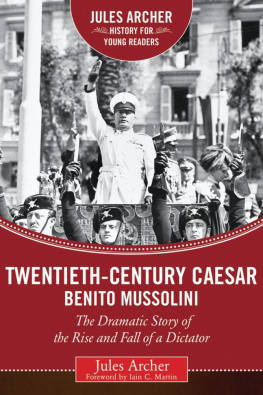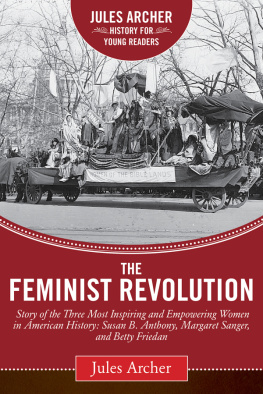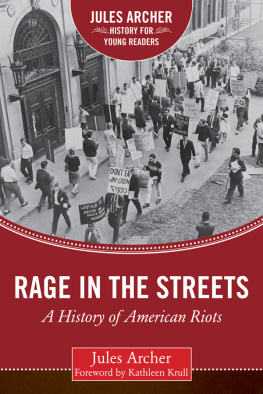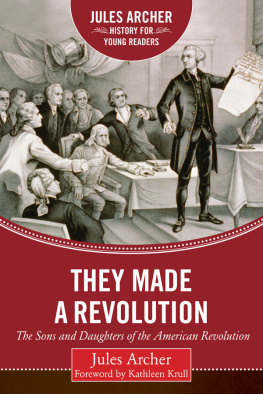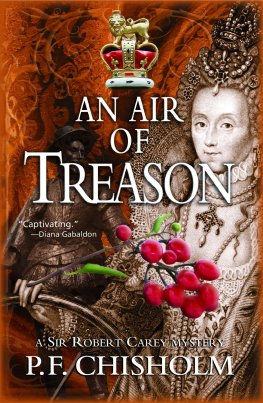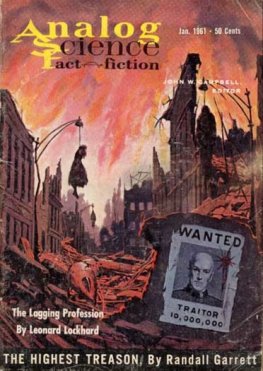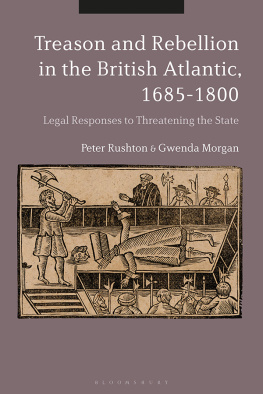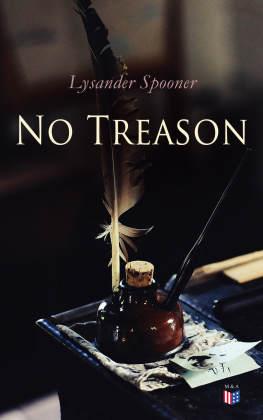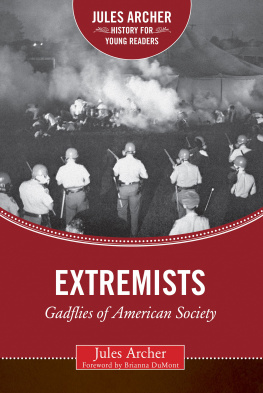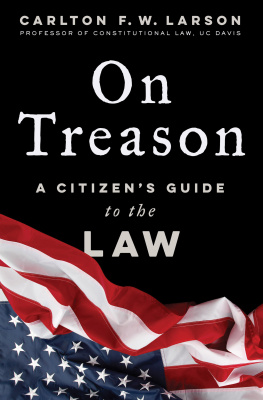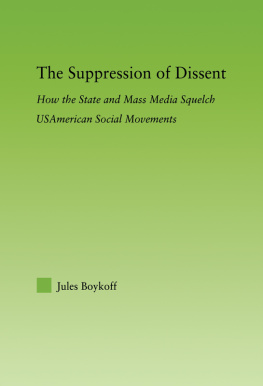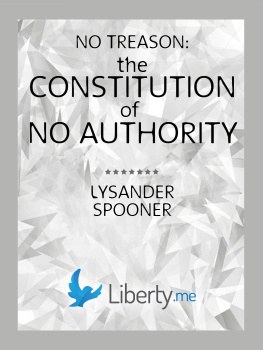Historical texts often reflect the time period in which they were written, and new information is constantly being discovered. This book was originally published in 1971, and much has changed since then. While every effort has been made to bring this book up to date, it is important to consult multiple sources when doing research.
Copyright 1971 by Jules Archer
Foreword 2016 by Sky Pony Press, an imprint of Skyhorse Publishing, Inc.
First Sky Pony Press edition, 2016
All rights reserved. No part of this book may be reproduced in any manner without the express written consent of the publisher, except in the case of brief excerpts in critical reviews or articles. All inquiries should be addressed to Sky Pony Press, 307 West 36th Street, 11th Floor, New York, NY 10018.
Sky Pony Press books may be purchased in bulk at special discounts for sales promotion, corporate gifts, fund-raising, or educational purposes. Special editions can also be created to specifications. For details, contact the Special Sales Department, Sky Pony Press, 307 West 36th Street, 11th Floor, New York, NY 10018 or .
Sky Pony is a registered trademark of Skyhorse Publishing, Inc., a Delaware corporation.
Visit our website at www.skyponypress.com.
10 9 8 7 6 5 4 3 2 1
Library of Congress Cataloging-in-Publication Data is available on file.
Series design by Brian Peterson
Cover photo credit Associated Press
Print ISBN: 978-1-63450-628-1
Ebook ISBN: 978-1-63450-198-9
Printed in the United States of America
To Kerry Russell Archer at Harvard.
CONTENTS
FOREWORD
Treason may be the most dangerous word in the dictionary. Its hard to define, easy to accuse, and always accompanied by a nooseor a firing squad or an electric chair. You get the picture. On the surface, it seems black and white: either a person has betrayed their country or not. Either they will die for it or not. Yet, by highlighting specific events in American history, especially during tense times, Jules Archer shows us treason has plenty of gray areas and is often a matter of perspective. Sounds like a dangerous distinction when the penalty is so high, doesnt it?
Over the years, shades of gray have come from many sources, like where you lived in America during the Civil War or your ethnicity during World War II. If that all seems too murky and distant, you may have wandered closer to treason than you realized. Today, we call it internet trolling. Thanks to being born into freedom, nothings stopping you from hopping on any form of social media and denouncing all of America as a mismanaged, mangled mess. Thats just good old fashioned dissent, right? Actually, theres a thin line between traitor and patriot, and not everyone agrees on where it should be drawn. If this were 1950s Hollywood, you might find yourself bunking up at the nearest federal prison for your crazy tweets.
Beginning with the American Revolution, we see from Americas own Founding Fathers how razor-thin that treasonous line could be. Who were the traitors? If you lived in Boston but still loved to drink tea while singing God Save the King, then the British certainly wouldnt have you hanged, drawn, and quartered. But, after they were booted, the new government might. Now they were the guys in charge, and winners are never traitors.
After the revolution, the budding republic had a lot to figure out, as one can see by the passage of the Alien and Sedition Acts or the federal governments swift response to Shays Rebellion and the Whiskey Rebellion. Even though the American Patriots began their rule with an uprising, they didnt want to be overthrown by the newest one on the block.
Moving on to the Civil War, the line between traitor and patriot became murkier than ever for the young country. The killing of President Lincoln, for example, was treated as an assassination in the North and a patriotic act in the South. After the war, America needed time to suss out what being a traitor meant in order to heal.
Throughout his book, Archer is an equal opportunist when it comes to his traitorous examples, highlighting many convicted women. Iva Toguri (a.k.a.Tokyo Rose) is a special favorite of his, having listened to her smooth radio broadcasts in the Pacific during his military service in World War II. Iva, a Japanese-American who defected during the war, detailed death and destruction to homesick American soldiers, trying to scare them into submission. Pointing to innocent Japanese-Americans being confined, Archer shows why this American woman would have defected and raises important questions about the effect of wartime hysteria. He shows how easy it was to throw around the word traitor and the damage it did.
Maybe a little too easy, since the definition regularly changed from year to year. Much like hairstyles, whats out of fashion one year can come back the next. Formerly attacked right-wing Fascists were giddy during the 50s as their left-wing enemies were suddenly the hunted under McCarthyism. Archer warns us to avoid condemning political opposition, however, since it might cycle back. He uses the Vietnam War as his example; those who opposed it were traitors during the Johnson Administration and purveyors of truth during the Nixon years.
Perhaps its in the turbulent 60s where Archer best puts on display the many shades of gray of dissent. When Archer reaches this era, rife with civil rights protests, anti-establishment movements, and the divisive Vietnam War, it feels as if hes speaking directly about issues facing us today. He could be discussing the War on Terror or race riots in Ferguson, Missouri, proving just how timely this book is to our generation. His discussion at the endon how each new generation of Americans will need to decide how much opposition is our Constitutional right versus how much threatens the security of our governmentrings especially true today.
Is it First Amendmentprotected dissent to Occupy Wall Street or is it disloyalty? Should you be worried about police manhandling you to the nearest jail cell if you choose to join activists protesting Michael Browns death in Ferguson? Should riot police be worried for their own safety while watching over angry citizens? How far should you be able to take your discontent?
He outlines the risks of cracking down hard on dissent and quotes Thomas Jefferson, third president of the United States and an original traitor to the British crown, who said, A little rebellion now and then is a good thing. It may seem as if Archer is urging us to fight against complacencythe death of any good idea. He certainly would have had a field day with current traitor/hero, Edward Snowden, who stands accused of espionage for leaking government documents concerning the USs broad-reaching surveillance system. Was Snowden a traitor or a patriot? Perhaps only time will tell.
In the heat of our protest-crazy nation, we should do well to remember Archers advice: To disagree with the law is your right. To disobey the law will incur penalties. If enough people believe the law is unjust, they can rise up and change it. That is the power and promise of a democracy. A good government recognizes the need to be shaken up every now and then.
As Archer ended with a call to action, so will I. Educate yourself, get involved, and make America the place you are proud to pledge your allegiance to. Just dont sing traitor to those who feel the opposite of you. Tomorrow, the future may prove them the winners.

